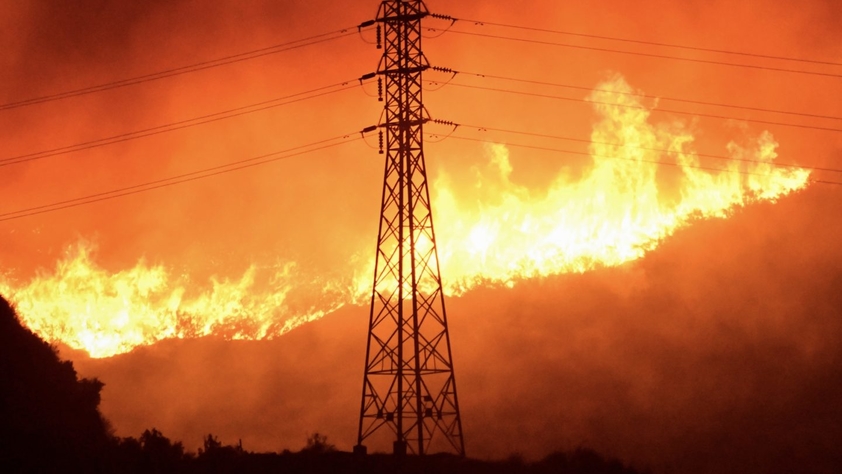
Fact Sheet
Wildfires and the Grid Fact Sheet
Overview
As the grid ages and extreme weather events like wildfires become more prominent, the relationship between them grows increasingly strained. Grid failures can trigger wildfires, while wildfires and the increased fire risk can, in turn, cause more grid failures, creating a vicious cycle. To reduce wildfire risk, some utilities are adopting strategies such as adjusting grid control settings, implementing public safety power shut-offs during high-risk weather, vegetation management, and worker protocols for dry conditions. State legislators can encourage utility adoption of these wildfire mitigation risk strategies and plan for future wildfire risk.
Key Points
Key Point 1
From 2001 to 2023 roughly 92 million acres in the United States have been burned by lightning-caused fires and about 68 million acres have been burned by fires caused by human activity, such as electrical operations.
Key Point 2
Nationwide, utilities cause roughly 10% of all wildfires.
Key Point 3
Approximately one-quarter of the $8 billion Grid Resilience and Innovation Partnerships (GRIP) Program will implement wildfire mitigation strategies.
Policy Options
- California S.B. 533 (enacted 2021): Mandated that utilities identify circuits frequently de-energized to mitigate wildfire risks, outlined measures to reduce future deenergization impacts, and required utilities to annually submit a comprehensive wildfire mitigation plan.
- Colorado S.B. 166 (enacted 2023): Established the Wildfire Resiliency Code Board which will work to adopt model codes to enhance wildfire resilience, which local governing bodies in wildfire-prone areas must meet or exceed
- Oregon S.B. 762 (enacted 2021): Directed the Public Utility Commission to convene workshops to develop and share information for the identification, adoption, and best practices regarding wildfires
- Washington H.B. 1032 (enacted 2023): Mandated electric utilities to develop and implement wildfire mitigation plans informed by best practices tailored to their specific service areas along with emphasizing collaboration between electric utilities, state agencies, emergency responders, and other stakeholders

Empower State Environmental Champions
Your donation funds the fight for equitable actions that protect the environment and our health.
Donate